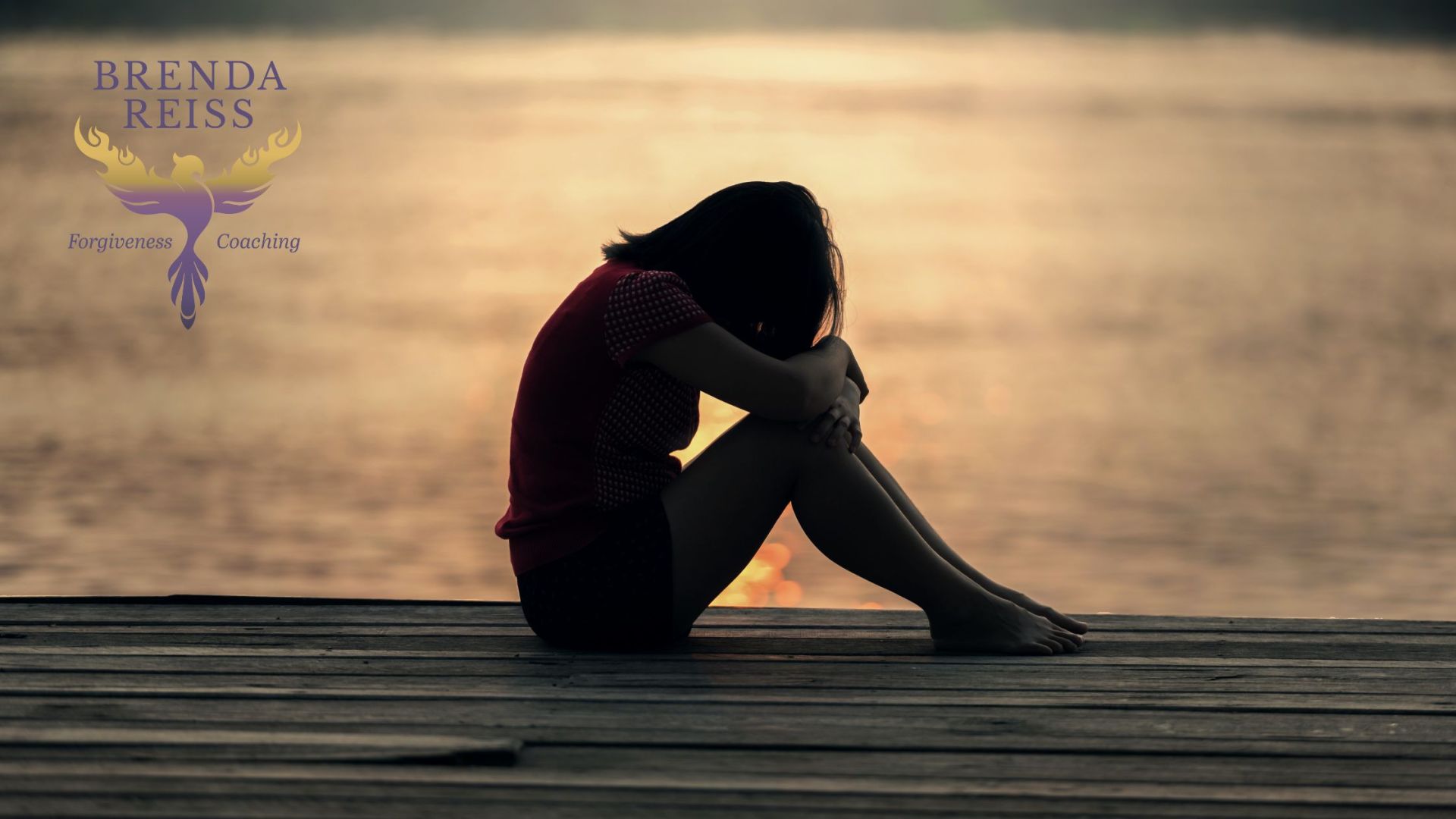Surrender. Just hearing that word likely evokes very different emotions from different people. For a lot of us, surrendering makes us take a leap of faith into the unknown, and that’s pretty scary. It takes courage and a willingness to be vulnerable with ourselves, but if we are open to it, it can lead to growth and connection in ways we never dreamed of.
Vulnerability Isn’t About Weakness; It’s About Courage
While there is much vulnerability when it comes to surrendering from within, I like to reflect on Brene Brown’s thoughts about vulnerability. She says, “ the more we protect ourselves from vulnerability, the more we grow fearful and disconnected. Being vulnerable then means the opposite: engaging fully and openly with the world around us. Vulnerability is the courage of putting ourselves out there.”

Surrendering Doesn’t Mean You’re Not In Control
Along our life’s journey, society and the environment in which we grow up often instill in us that being ‘in control’ of a situation is for our own good and protection. The structure and order needed to live within communities of others take our ability to hold things in, stick to our rules and regulations, and always have our fingers on the pulse of whatever is going on. Society teaches us that this ‘control’ protects us from our surroundings and situations that would not be good for us.
The problem is that we rely on that ‘control’ as a safety net and many of us end up being ‘control freaks’. Don’t get me wrong–you’re in good company! The problem with being one who feels they always have to be in control of the situation is that you may become rigid and lose yourself. Trying to maintain too much control over life and its situations means you may end up stifling your own creativity and relationships with others.
Even sadder, it means you may lose a healthy relationship with yourself.
How To Surrender Control
I don’t want to give the impression that trying to maintain control over our relationships and our life’s circumstances is something negative. The truth is, many of us have been hurt and traumatized, and the only way we feel as if we have any empowerment in our lives today is if we do our hardest to control everything we can. It’s understandable that many of us who’ve struggled when we had no control overcompensate when we can by exhibiting too much.
It’s exhausting to always feel like you have to have a handle on everything. It wipes you out to constantly worry about how someone will react if you show your true, authentic self and feelings. It zaps you of every bit of joy in situations when you feel you’ve got to constantly be on top of everything.
If you’d like relief, surrendering some of that constant worry can set you free. It’s not easy, but you can start by practicing a few simple things as you build up. Here are a few to consider:
- Ask for help. You don’t have to do everything to ensure it’s done well. Perfection is the enemy of good enough, and it’s okay for things to be good enough. That means you can allow people who offer to help to help. Knowing that even if it’s not how you’d do it, it’ll be good enough. Ask for help and allow people to be a blessing to you as you are likely to them. You can relax a little and create authentic trust and bond with those around you.
- Speak your feelings and develop relationships in which you can feel safe. Sometimes it’s hard to speak your true feelings on things because you fear someone may not think you have it all together. The truth is we are ALL drivers of the struggle bus at some time, and sharing those thoughts and feelings allows you to release the weight to someone who cares. The more we open ourselves up and are vulnerable to our thoughts, the more we develop authentic relationships of trust and security. That’s when we realize we don’t have to ‘do it all.’
- Slow down and be present. One of the hardest things for most of us who have a hard time surrendering to the situation is just slowing down and being present in the moment. We feel like we always have to be doing something because if we’re not, the house of cards we’ve carefully constructed falls. Slow down and be purposeful about being in the moment and being present in the situation. This will allow you to see it and feel it from the perspective of an ‘experiencer’ instead of a ‘manager’, and that will open a whole new world of opportunity to you.
When you’re present in a moment, you have the ability to be curious. You can feel and investigate what’s going on instead of wondering how you can make it the way you think it should be. Being present allows you to learn to accept things and make peace with them, which is far less exhausting than trying to run yourself into the ground, manipulating situations into something you believe is better for everyone else.
To Loosen Control, Trace The Control
If you’re looking to let go of some control and surrender to some new freedom, you need to be willing to be curious about how your propensity to hold tight started. As I said, it’s often something traumatic, a time in your life or event that made you feel unsafe, and your intrinsic defense mechanism was control. Explore those memories and situations. Get curious about going back and seeing what you can see in hindsight. Meditate about your feelings about life and your place at different ages. Consider the age you began to feel you needed to control your surroundings and life to keep you safe. I always recommend journaling whatever thoughts and feelings come to you, as your words often are not just healing but prophetic. Through them, we can see where we’ve come from but also identify paths we look like we may be ready to take.
Take forgiveness, for instance. Forgiveness truly is all about surrender. When we forgive, we take the control perspective in accepting that a wrong has hurt us and we’ve been victimized. But if we’re open to surrendering our hurts and working on healing through forgiveness, we also get to reframe the situations that made us feel the need to protect ourselves with rigidity. We can choose to stop blaming the situation or even the person who traumatized us and instead declare victimization doesn’t make us victims.
Even better, when we truly look into forgiving someone and surrendering our hurt, we can release the suffering for an even better life story as we move on.
Surrender Doesn’t Have To Mean Giving Up or Giving In
In one of our Love From The Hyp Conscious Coaching Hours, Sakura reminded us that control is an illusion that gives us a false sense of power. The more we fight, the more we end up exhausted and tired. We also end up losing pieces of ourselves.
Rory reminded us that surrender doesn’t have to mean we ‘give up’ or ‘give in’ to someone else’s demands. It’s actually the ultimate in control because we purposely choose to be brave and courageous and accept things as they are. He reminds us of the “Serenity” Prayer: “God grant me the serenity to accept the things I cannot change, the courage to change the things I can, and the wisdom to know the difference.”
That wisdom truly comes from forgiveness and surrender–the freedom and empowerment to realize that fighting against what you cannot change is more painful and damaging than just accepting what is and learning how to grow through and from it.
The bottom line is one that mirrors a Middle Eastern proverb Sakura shared with us. “Trust in God, but tether your camel.”
We have the choice to trust in that which is greater than us through surrender, but we also get to maintain active participation in responsibility during and through the process. The worst part of surrendering for many is the uncertainty, but that is the time that we may find more opportunities. We have the power to open those opportunities…if we’re just willing to let go of some of the resistance we’ve been putting up to protect ourselves.
If you’d like to hear more about how to live more freely and be open to what the world has for us, check out Surrender on the Conscious Coaching Hour.





0 Comments